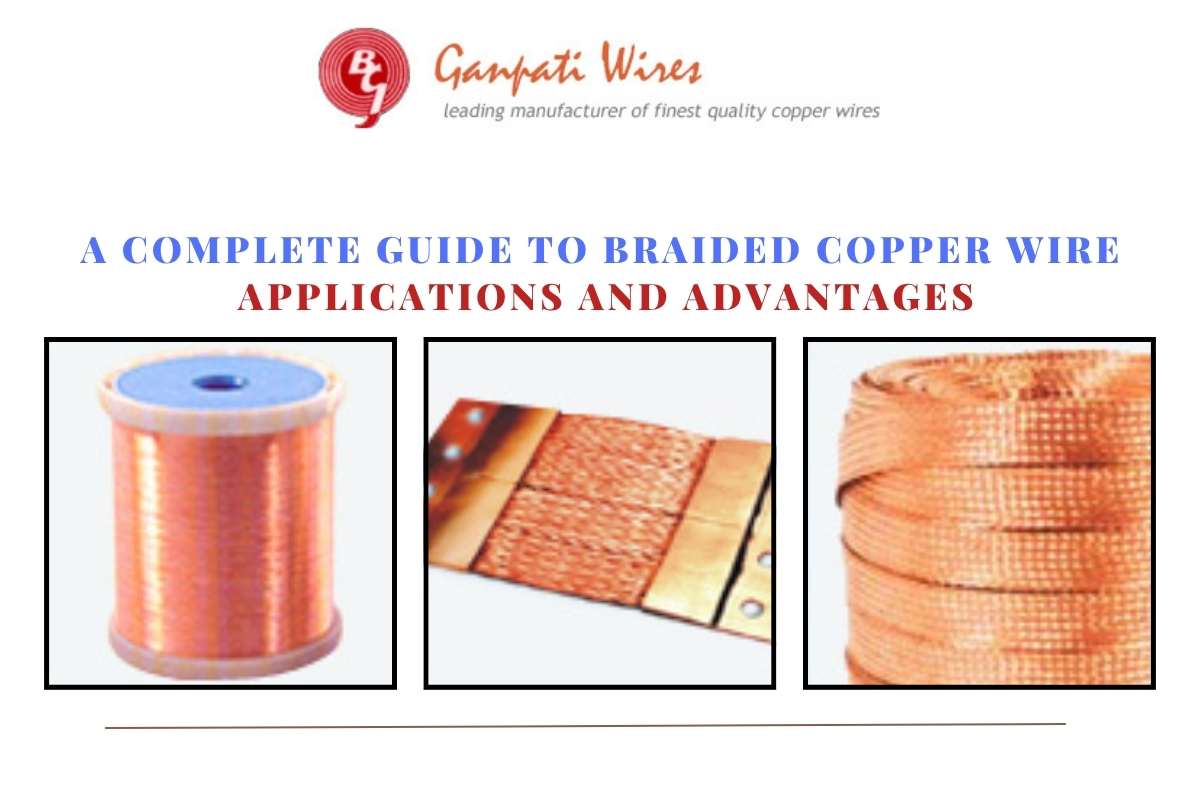Everything You Need To Know About Copper Wires
Copper is an excellent conductor of electricity that makes it the most preferable metal used for manufacturing wires and electrical components. It has several applications as power cable in TV, plugs, computers, telecommunication signals and other electrical appliances.
Copper wires are primarily used in electricity generation, transmission, and distribution processes. Copper connectors are used as circuitry components to make electrical contacts. Ganpati Wire is a reliable destination to buy standard copper flexible copper wires of different sizes and thicknesses as per their utility.
Manufacturing solid copper wires
Copper is a highly malleable and ductile metal, which means it can be easily transformed into long wires and a thin sheath under pressure and temperature conditions. In this process, copper becomes extremely thin and brittle so it has undergone another process i.e., annealing. The annealing process makes the copper wire stronger and more ductile so that it can tolerate high electric volts. The resulting copper wire is an essential component of an electric system.
What is stranded copper wire and how is it made?
Stranded copper wires are compressed bundles of thin wires. An insulation covering of non-conductive material covers these wires making them ideal for use to connect electrical components. Stranded wires are more flexible and these can easily be twisted. These wires are best to use in electronic devise and circuit boards.
Small and thin wires when bundled together, it forms stranded copper wires. These wires have more cross-sectional area and are more ductile than the single copper wire.
What is the solid copper wire?
A solid copper wire contains only a single strand of copper wire. Either it is bare or has an insulated coating of non-conductive material. Solid copper wire finds its utility as magnet wire in transformers and motors.
Comparison of stranded and solid copper wires
Stranded and solid copper wires have their own advantages according to different applications. They differ from each other according to their uses as well as physical properties.
1. Electricity dissipation
Solid wire is thick with no air gap, it has less surface area for current dissipation. On the flip side, in Stranded copper wires several thin copper wires are twisted together leaving more air gap between them for current dissipation. Solid wires have a higher current capacity and they are ideal for house wiring.
2. Ductility
Stranded wires are more ductile and they can be twisted and molded easily. These wires withstand higher power generation and transmission without getting degenerated.
Solid wires are thin and less flexible which is the reason they cannot withstand higher electric volts.
3. Applications
Solid copper wires are the better electric conductors. These wires are less affected by vibration and corrosion. These are ideal of outdoor applications. Stranded copper wires are more flexible and are ideal for indoor applications.
Ganpati Wires is a trusted and renowned copper wire manufacturer and silver and tin-coated copper wire supplier in India. They provide top-quality solid and stranded copper wires of different lengths and thicknesses.

.jpg)

Comments
Post a Comment